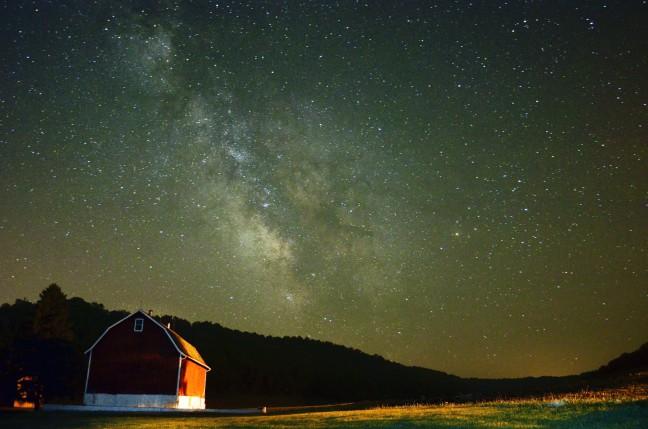April 4, the University of Wisconsin announced its enrollment in a national initiative called Small Town and Rural Students College Network, which assists students from rural areas with the college enrollment process.
UW’s introduction of the STARS or Small Town and Rural Students College Network aims to make the university accessible to all students in both Wisconsin and Minnesota, Emerging Leaders Program Director Jennifer Blazek, who will be leading the STARS initiative, said.
Approximately 16 participating colleges and universities throughout the country, such as Yale, USC, Brown and Columbia University are participating in this wide-reaching network, which strives to offer increased pathways for students at small-town high schools to gain higher education, according to the STARS College Network’s website.
“Small-town and rural students are very underserved in the general college landscape, and some of the data points indicate that they don’t take advantage of higher education as much as their urban or suburban counterparts,” Blazek said. “So [this program has] focused on providing resources to directly reach those students.”
Blazek hopes that with the establishment of this recruitment program, a greater number of rural and small-town students will be able to pursue higher education not only at UW but at other universities, such as the Ivy Leagues, that may better suit their interests or abilities.
While Blazek’s focus is on students in Wisconsin and Minnesota, she is also keenly aware that the other institutions involved in the network may have resources that could apply to others as well. Because of this, she is taking a more national than regional approach to this recruitment program.
There are many barriers rural students face when pursuing a college education, Blazek said. In many cases, students don’t even discuss the possibility of attending a college or university in a major city. There is also a significant lack of resources for information on the lengthy application and enrollment process, Blazek said. Blazek highlighted the importance of stressing the opportunities available to rural students beyond those available in their vicinity.
Camille Alvarez, a current UW sophomore from a small town, believes the STARS recruitment program would have been tremendously valuable to many students in her area.
“I think if we were to have had a STARS program it definitely would have been beneficial because coming from my hometown I didn’t have that many resources that could help me out in the decision, and especially the application process,” Alvarez said.
Currently, many students in rural areas not only lack access to college enrollment and application resources, but in some cases, they are not encouraged to attend a four-year university, Alvarez said.
The STARS network programming will include visits from college admissions teams, workshops on the college search process, assistance in finding financial aid and scholarships and programs offered to school counselors to provide further and lasting support for students, according to the UW News release.
“I feel like we were pushed to go to trade school which is something great to know about, but I wish Ivy Leagues or bigger cities like Madison would have been talked about,” Alvarez said.
The program will also partner with businesses locally and nationally to provide job and internship opportunities to these students, according to the news release.
In addition to professional job networking, Blazek hopes to establish a network of current UW students from rural areas and connect them to current and incoming freshmen to aid in the occasionally difficult transition.
“When you’re at a university one of your goals should be networking, getting to know others who could be a great support for you, or they could be connections in the future,” Blazek said.
Network-building is one of the most important aspects of this recruitment program, as building a community of peers on campus is essential not only to become acclimated with the campus but also to forming connections that could be helpful in the future, Blazek said.
According to Alvarez, a networking program like this would be beneficial to rural students who may feel isolated while becoming acquainted with a new campus environment.
“I do know of people who were a little bit more homesick and I think more connections to maybe get in touch with people who may be in the same boat or who have had that experience would be a great thing to have here,” Alvarez said.
While the STARS College Network program is specifically aimed toward current rural high school students, Blazek described the positive implications of this program for current UW students. She recognizes the importance of building relationships and a community of students from different backgrounds, especially considering that rural students have a unique experience and perspective that greatly differs from that of urban students.
Blazek plans to utilize current UW students as ambassadors to help tell the story of what it’s like to be a rural student at college. Current students from rural areas interested in being part of this process can contact Blazek to tell their story or find more information about how they can support the program.
Students often return back to their hometowns after graduating from college, according to UW News. STARS hopes that their programming will not only help current students but facilitate a cycle of support and opportunities for higher education for generations to come.



